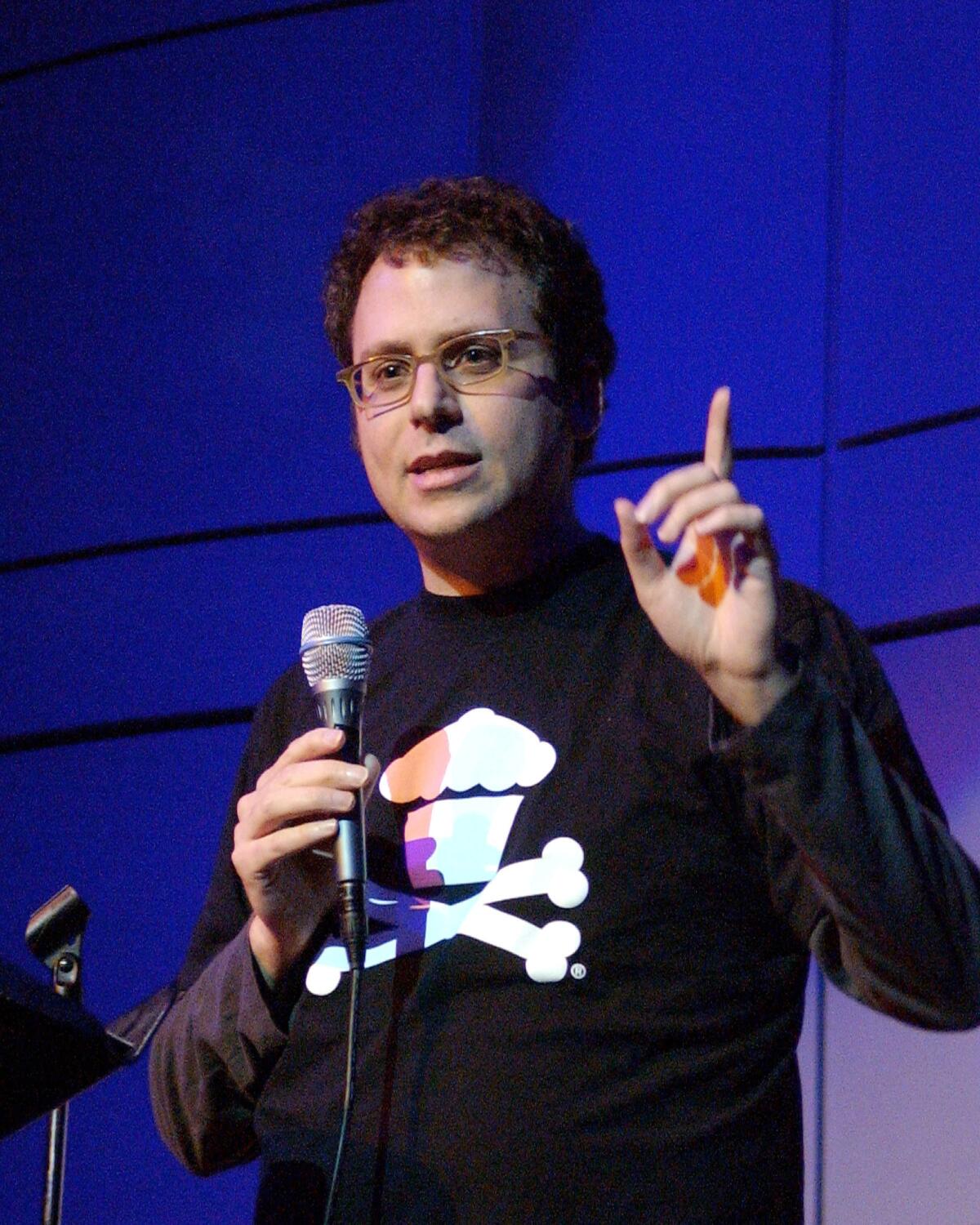The California Supreme Court was right to reject Stephen Glass

- Share via
Gotta admit, I was rooting for Stephen Glass in his quest to be admitted to the California bar.
I had trouble grasping how a disgraced “wunderkind” journalist who made up or falsely embellished some 40 magazine stories in the late-1990s could not be considered rehabilitated after abjectly apologizing, undergoing 12 years of psychotherapy, attending law school, working as a law clerk, providing free legal aid to homeless clients and generally reinventing himself as an upstanding citizen.
But after reading the California Supreme Court’s harsh 33-page decision refusing Glass’s request, with its reminders about the stories he made up, I can’t say I disagree with the justices.
Many recall that Glass, now 41, brought disgrace to the New Republic, and other magazines, with outlandish made-up stories, the details of which have mostly faded from memory. The court took time to revive some of his most egregious offenses, which did lasting if not permanent damage to those he trashed, and to the profession overall.
Some of his greatest hits (or hit pieces), as relayed by the court on Monday:
**Glass made up a story about witnessing an African American man use a knife to rob a cab driver of Middle Eastern descent in Washington.
**He made up a story about being called an anti-Semitic slur by a telephone customer service representative at a real computer company and not only sent a letter of complaint to the company president, but also sent one to the ADL. (The company was able to determine which of its representatives had spoken with Glass, the judges wrote, though no slur was ever uttered.)
**He made up a story about young men at the Conservative Political Action Conference in Washington getting stoned and luring an overweight woman into a room where they humiliated her.
**In a profile of Vernon Jordan for George magazine, Glass viciously trashed the Democratic political insider with made-up quotes from made-up sources.
**In a Harper’s magazine story about phone psychics, Glass conjured up an imaginary African American man who refused to buy food for his seven children by five women, and instead spent his money on VCRs and calls to the psychic for lottery number advice.
It was not enough that a stream of witnesses (Glass’ girlfriend, his former New Republic boss Martin Peretz, his law professors, judges for whom he has clerked, his psychiatrists) told California’s Committee of Bar Examiners that they believe Glass was honest, highly competent and unlikely to lie again.
What was at stake, justices wrote, was not “compassion for Glass” but “his moral fitness to practice law.”
The story of Stephen Glass is an object lesson for professionals who royally screw up in one sphere, then set out to work in another that, like the law, requires proof of moral suitability.
It’s not enough to apologize and set yourself on a productive path. You’ve got to unflinchingly face what you’ve done and admit it in a manner that serves others, not yourself. And that, the court essentially said, is where Glass failed:
He only partially fessed up when he was caught. He forced the magazines he betrayed to figure out which stories were flawed instead of telling them in detail himself. When he applied in 2002 for admission to the New York bar, they said, he “mischaracterized the degree to which he cooperated with the magazines to identify the fabricated articles.” (He withdrew his application in 2004 after learning he would be rejected on moral grounds.)
In fact, the court said, it wasn’t until after Glass passed the California bar in 2006, and filed an application for “determination of moral character” in 2007 that he closely reviewed all of his magazine stories and identified even more fabrications that he had previously denied or failed to disclose.
“Many of his efforts from the time of his exposure in 1998 until the 2010 hearing,” wrote the court, “seem to have been directed primarily at advancing his own well-being rather than returning something to the community. His evidence did not establish that he engaged in truly exemplary conduct over an extended period.”
(Even his pro bono work, they said, was nothing out of the ordinary, as that sort of charitable work is expected in the legal profession.)
My colleague Maura Dolan reported that Glass, who works as a law clerk in a Los Angeles firm, can draft motions and briefs and prepare witnesses, but may not address a judge or jury or examine witnesses.
In the end, the justices said, there’s a difference between personal redemption and professional rehabilitation. For some, that may be a distinction without a difference. But i think it makes sense.
Twitter: @robinabcarian
More to Read
Sign up for Essential California
The most important California stories and recommendations in your inbox every morning.
You may occasionally receive promotional content from the Los Angeles Times.











